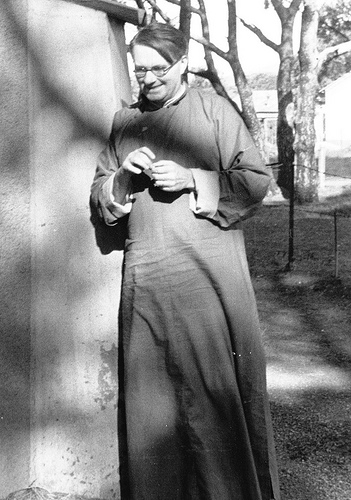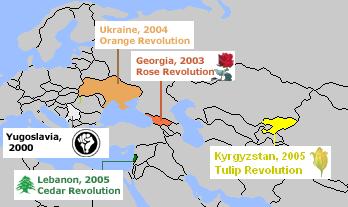LETTERS FROM THE GLOBAL PROVINCE
Global Province Letter: Cutting Down the Weeds and Cutting to the Chase
May 5, 2010
 Strawberries Galore. Come Spring and Summer, we dream of blending heavy Jersey cream (the milk of the beautiful Jersey cow is blessed with a higher percentage of butterfat than that of other breeds) with mouth-watering strawberries brought to ultimate ripeness by New Jersey’s compelling sun, which also gives birth to the nation’s best tomatoes. As the Beatles proclaimed, we dream of Strawberry Fields Forever.
Strawberries Galore. Come Spring and Summer, we dream of blending heavy Jersey cream (the milk of the beautiful Jersey cow is blessed with a higher percentage of butterfat than that of other breeds) with mouth-watering strawberries brought to ultimate ripeness by New Jersey’s compelling sun, which also gives birth to the nation’s best tomatoes. As the Beatles proclaimed, we dream of Strawberry Fields Forever.
Of course, the acres of plantings will come to nothing without proper cultivation. Before chemicals and pills took over America, resourceful farmers put geese to work amongst the berries. These diligent birds were renowned, amongst the cultivated and knowledgeable, for picking their way through the strawberries, laying low the weeds, and leaving the fruit for human predators.
It’s easy to drive a flock of geese to their workplace. Raising one hand or the other will move them left or right, so the whole herding process is a lazy adventure for a boy doing summer chores on a farm. The river is just beyond, a near spot in which to swim and cool off or to catch a few speckled trout for dinner. Soon enough, the strawberries mature, and they’re so tempting that even weekend warriors do not resent stooping down to pick them off the vine.
One must get rid of the weeds to enjoy the fruit, wherever you go. In consulting, we say that we must get free of the weeds in order to get to the heart of the matter. If one gets too caught up in detail, useful knowledge proves elusive. Global wisdom evades those who are inherently provincial.
Knowledge Management. As mankind sinks further and further into the weeds, a new discipline has sprung up to assemble the right stuff and to create elaborate mechanisms for making sure it gets distributed inside (and sometimes outside) the organization. These knowledge systems are merely updated versions of library- science thinking and the Dewey Decimal System. Anybody who has fiddled at the edges of these geeky systems knows that they are choked with weeds. Useful knowledge does not whirr around the universe because of these newfangled schemes. And organizations do not get usefully connected to the world, so the knowledge they accumulate tends to be small-town.
Principia Mathematica et.al. What we seem to discover is that global, earthshaking knowledge is neither created nor distributed by ordinary institutions, be they universities, corporations, or governments. That’s usually the work of extraordinarily bright individuals whose most important work is done in their own vineyards, away from the madding crowd. They have a tenuous and often straitened relationship with some university and harbor beliefs and eccentricities that motivates them but also puts them beyond the ordinary pale.
Sir Isaac Newton provides us with ample example. In reality his most important work started at home, before he seriously took up Cambridge and London. There, too, he ostensibly indulged in mystical doings. So we know him as “physicist, mathematician, astronomer, natural philosopher, alchemist, and even theologian.” What’s important is that his work dealt with fundamentals or basic principles, that he covered so many of the important scientific bases of his day, and that he literally was taking on the universe, or at least the solar system. This he did off in his cocoon. Newton was educated at Cambridge, and helped establish its important position in the sciences, but he was larger than the institution that begat him. Interestingly he had a pedestrian record as a student, probably because he was informally studying so many fields that had nothing to do with the ordinary curriculum offered by his lecturers.
Science and Civilisation in China. Simon Winchester brings us The Man Who Loved China: The Fantastic Story of An Eccentric Scientist Who Unlocked the Mysteries of the Middle Kingdom. Winchester has a penchant for telling the story of unusual fellows who put together compendiums of knowledge. He also authored The Professor and the Madman, which tells us how the Oxford English Dictionary came to be.
Frankly, this book is more exciting, because it recounts how Joseph Needham, a brilliant biochemist at Cambridge, at the height of his work, took up a second career, assembling an encyclopedic rendition of Chinese science and invention, as related to China culture, as related to world culture. Quite by accident, but with the prompting of his Chinese mistress, he went to China during World War II as a roving ambassador for the United Kingdom, with the mission of encouraging Chinese scientists even as the war pressed in on them. While there, he gathered copious documentation on the history of Chinese science, proving, for instance, that the Chinese were printing well before Gutenberg got his press going. On his return to England, he set about turning all this into manuscript: what was intended to be just a few books turned into more than 20 volumes. Today his mountain of source materials are archived at Cambridge’s Needham Research Institute. Singlehandedly, Needham changed the world’s view of China and, we suspect, helped China better understand its own identity which, in modern times, has been too wrapped up in Party history.
Interestingly, it is often Westerners who teach the Chinese people things that they did not even know about themselves. Probably the most knowledgeable guy about the Great Wall of China is one David Spindler, who had sojourns at McKinsey, CNN, Harvard Law, and other haunts before totally dedicating himself to mapping the Great Wall and its history. Others have been equally dedicated to putting the Chinese mosaic back together.
 Needham seems to have been a nudist, womanizer, borderline Marxist, and explorer of arcane matters whose love of China gave him unimagined insights into its history and greatness, but also got him into a heap of trouble. At the urging of the Chinese, he headed up an international commission that concluded that the United States had carried on germ warfare during the Korean War. In fact, he was duped by both the Chinese and the Russians, and the evidence points quite the other way. His love of China clearly colored his judgement, and he failed to look under the sheets when doing his “investigation” of the germ warfare allegations. On this subject, Winchester, who may also wear pink-tinted eyeglasses, is a little squishy, finding it intolerable that the U.S. blacklisted him as part of the unending game of geopolitical chess between the Russians and the U.S. during the Cold War. The English tend to be a little too forgiving of the intellectual tribe at both Cambridge and Oxford, some of whom have often fallen for horrendous regimes at some expense to their country and to the West.
Needham seems to have been a nudist, womanizer, borderline Marxist, and explorer of arcane matters whose love of China gave him unimagined insights into its history and greatness, but also got him into a heap of trouble. At the urging of the Chinese, he headed up an international commission that concluded that the United States had carried on germ warfare during the Korean War. In fact, he was duped by both the Chinese and the Russians, and the evidence points quite the other way. His love of China clearly colored his judgement, and he failed to look under the sheets when doing his “investigation” of the germ warfare allegations. On this subject, Winchester, who may also wear pink-tinted eyeglasses, is a little squishy, finding it intolerable that the U.S. blacklisted him as part of the unending game of geopolitical chess between the Russians and the U.S. during the Cold War. The English tend to be a little too forgiving of the intellectual tribe at both Cambridge and Oxford, some of whom have often fallen for horrendous regimes at some expense to their country and to the West.
The Quietest Revolutionary. Back in the 18th century, Americans in Boston fired the shot that was heard around the world. In the 20th, going into the 21st, Gene Sharp’s whispers have sifted through cultural curtains that dictators and backwardness seemingly had made impenetrable. He seeks to make non-violence actionable such that its practice can have a liberating effect across the world. Laboring away in his Albert Einstein Institution in South Boston, he has produced a ream of literature, generally unknown in thi s country, that has earned the wrath of dictators in Iran and Venezuela, and excited young, non-violent revolutionaries in Serbia, and Georgia, and a host of other so-called republics suffering from brutal rule. His books do run long, but his biggest success is From Dictatorship to Democracy, which only runs only 90 pages, now in its third edition. What it does is to give protesters a way of framing their strategy and devising a multiplicity of non-violent tactics that will erode the authority of regressive regimes. Curiously Sharp was the subject of a long, front page article in the Wall Street Journal entitled “American Revolutionary,” his ideas even infiltrating the mentally barricaded fortress of that publication.
s country, that has earned the wrath of dictators in Iran and Venezuela, and excited young, non-violent revolutionaries in Serbia, and Georgia, and a host of other so-called republics suffering from brutal rule. His books do run long, but his biggest success is From Dictatorship to Democracy, which only runs only 90 pages, now in its third edition. What it does is to give protesters a way of framing their strategy and devising a multiplicity of non-violent tactics that will erode the authority of regressive regimes. Curiously Sharp was the subject of a long, front page article in the Wall Street Journal entitled “American Revolutionary,” his ideas even infiltrating the mentally barricaded fortress of that publication.
Perhaps the most interesting aspect of Mr. Sharp is his drawing power. The seekers find him. He rarely discovers his adherents or any of his financial sponsors. The world beats a path to his door. His method of attack at his enterprise is not to attack at all. His mode of communication matches his message. What he has to say is widely dispersed because he eschews all the conventional tools of propaganda, virtually passive when it comes to spreading his word.. He would be the dispair on any advertising man.
The Spread of Genuine Knowledge. Newton and Needham and Gene Sharp must interest us because their work, truly original, does move around the globe, and we’re not exactly sure how. Leonard Krieger, a very profound intellectual history professor, knew that original thought does not boil up on campus. He considered the university a mere vehicle for spreading the word of geniuses who carried on their endeavors outside of academic institutions.
Indeed, good new thinking does eventually seep into the university, but we learn that the temples of learning are just as resistant to new ideas as churches, governments, and businesses. What seems clear is that it does take a genius to create a new body of thinking and that the creator will eventually publish his thoughts in some form. Whereupon, it is a curious web of people, often outliers, who get his or her thought around the world. The best minds do talk to each other, and their informal, small networks are the engines for pushing ideas here and there about the globe. Ideas spread because the gods implant them in some knighted individual. In time his hearty band of confederates takes them up.
How big ideas move about is of more than passing interest. In the United States, we are a bit intellectually defunct at the moment. We have run out the string on pragmatism—the animating American idea since the early 1900s: we’re in need of a new intellectual framework. We must close down a bunch of intellectually bankrupt institutions if we are going to have a vibrant economy and a new tenable social contract. We’re tasked with finding some way out of our intellectual gridlock, an atmosphere that enables only the vain, the foolish, and the criminal. Traditionally good ideas have emigrated to the United States, carried inside the heads of foreign folk, the source of most of our greatness, and that will surely have a part to play in the reinvention of our view and ideas..
In our “Bloom—In Praise of Divorce,” we cited Bruno Latour’s classic book on how Louis Pasteur’s very important ideas took hold of France This is an epic example of how powerful ideas get disseminated throughout society. We need something just as meteoric now. It’s not that Americans have run out of ideas, but our leaders have.
P.S. Pollinating the world with good ideas is central to the defeat of terrorism. So much of terrorism springs from societies that are caught up in medieval custom and thinking, even if they have embraced some aspects of modern technology. Our battle with terrorism has largely been unsuccessful. We shall review in a future letter some of the paltry literature about terrorism which offers little in the way of real palliatives. The antidote to terrorism is to suck backward nations and even backward parts of developed nations into the 21st century. We must get these societies to renew themselves and shake their inertia.
P.P.S. The very small world of intellectual historians exemplifies how good ideas make their way around the world. Carl Schorske, long Berkeley’s bright light in this field, who finished his career at Princeton, was well acquainted with Krieger and did an appreciation of him for the American Philosophical Society. Even if this earth is covered by millions of people, new ways and new words circle the earth through the power of very minute networks.
P.P.P.S. There’s an army of chaps at sundry universities who are trying to get discoveries from the campus into the commercial marketplace. Their erratic efforts do not work out terribly well, because neither the commercializers nor their institutions are up to the task. Nonetheless, new ventures do grow up around good universities often because engineers and scientists get so frustrated by academic bureauacracy that they leave their sluggish institutions and decide to do start ups. Curiously DARPA, the defense department’s far out research agency, which we comment on this week, has done a pretty good job of driving bleeding edge science into the armed services and beyond. Michael Belfiore ably celebrates DARPA’s massive achievement in his The Department of Mad Scientists.
P.P.P.P.S. For some reason we like to cite Harvard as an example of a university that has impeded new ideas. Many years before the Australians uncovered the bacterial source of ulcers, A. Stone Freedberg at Harvard came up with the thought, but he was told to get off the topic. Kilmer McCully, once in Boston, thought folic acid might inhibit heart disease, but he had to leave town, because the powers that be endorsed only cholesterol research. It is often not realized how even our most noted institutions smother the best and brightest.
P.P.P.P.P.S. Our correspondent from Shanghai writes to tell us of the intellectual ferment stirring behind the bamboo curtain. “Today, China happily experiments with all sorts of harebrained and brilliant ideas. In fact, there is a club of intellectuals than call themselves ‘ the society of bad ideas’. Can you imagine? They are a wonderful group of zany intellectuals who come up with all sorts of bad ideas, but also with one or two good ones.”
P.P.P.P.P.P.S. Needham even includes a volume in his plan that comes to terms with why China’s intellectual fires went out. That’s the one we would want to read. We would suppose it’s important to understand what makes a society suddenly drive down a blind alley. “Volume V would investigate the ‘Needham question.’ It would try to fathom what changes suddenly occurred in the China of five centuries ago that made it necessary for modern science to develop not in China but elsewhere….In the middle of the fifteenth century virtually all scientific advance in China came to a shuddering halt, and Europe then took the leading role in advancing the world’s civilization.” (Winchester, p.190)
P.P.P.P.P.P.P.S. It’s the devil’s own time to separate the trivial from the germane, the towering thought from the redundant. William Wimsatt, now deceased, was an extraordinarily fine scholar of English literature at Yale University. He had an ongoing argument with a local poet over what should be published. The poet said, “Let it all see the light of day. In 50 years we will know what’s great and what’s dross.” Wimsatt only wanted the ‘good stuff’ to get printed. The problem is, of course, that the grey hairs who decide what’s great usually wind up picking the wrong stuff. Universities are almost notorious for weeding out the best and cherishing the banal. Mr. Wimsatt, who was truly brilliant and showered the world with insights, was a terrible writer, by the way. Weeding is a tough business.
Home - About This Site - Contact Us
Copyright 2010 GlobalProvince.com